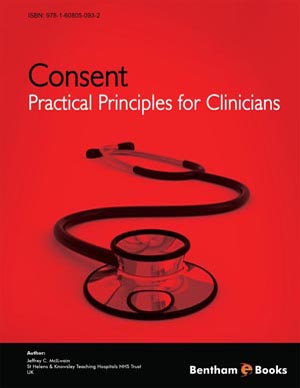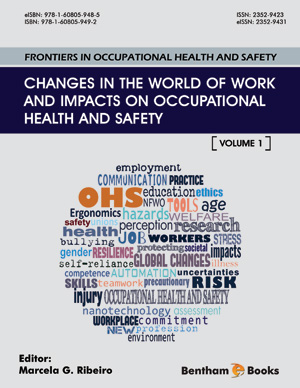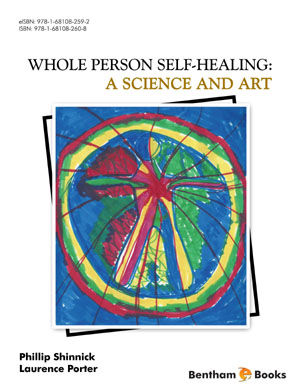Background To The Text
Page: iv-v (2)
Author: Jeffrey C. McILwain
DOI: 10.2174/9781608050932111010100iv
Golden Rules Of Consent
Page: viii-viii (1)
Author: Jeffrey C. McILwain
DOI: 10.2174/97816080509321110101viii
Basic Law and Consent
Page: 1-5 (5)
Author: Jeffrey C. McILwain
DOI: 10.2174/978160805093211101010001
PDF Price: $15
Abstract
The proof that consent has been given by a patient lies with a clinician as part of their duty of care within the tort of negligence. An adult may give consent for themselves however if they are incapable or a child then another appropriate adult, except in an emergency situation, must be included in the discussion about consent for the patient. There is case law and legal doctrine that underpins such an approach and aspects of statute law that also apply.
Basic Ethics and Consent
Page: 6-8 (3)
Author: Jeffrey C. McILwain
DOI: 10.2174/978160805093211101010006
PDF Price: $15
Abstract
There are many ethical principles that guide doctors and underpin their approach to care. In recent times an ascendant principle has been autonomy - the right of a person to make decisions for and about themselves.
Decision Making Ability - Capacity
Page: 9-12 (4)
Author: Jeffrey C. McILwain
DOI: 10.2174/978160805093211101010009
PDF Price: $15
Abstract
Capacity is also known as competence and is about decision making ability. The simplest basis of capacity is the ability to understand and retain information and then to weigh it up and then decide. It is presumed in law that all adults have such ability and it is also taken that older children (who may be referred to " young persons" ) can have the ability. However, if an adult or child / young person lack such a complete ability then strong measures must be in place to protect them.
Clinical Information
Page: 13-25 (13)
Author: Jeffrey C. McILwain
DOI: 10.2174/978160805093211101010013
PDF Price: $15
Abstract
To use capacity wisely requires access to information. Information quality must be full and neutral in content and cover alternatives as well as potential risks. The quality of imparted clinical information must be of the highest standard, relevant and pertinent to the individual patient. Regarding risks, specific attention to frequency based upon sound knowledge can be ascertained by using standard methodologies and principles as used in non-clinical risk management situations. Allowance has to be made for patient perception as well as professional's perception in the arena of quality.
Types of Consent
Page: 26-32 (7)
Author: Jeffrey C. McILwain
DOI: 10.2174/978160805093211101010026
PDF Price: $15
Abstract
The degree of recording of consent is generally proportionate to the potential risks that may occur or significance of the procedure. There is the usage of standardised consent forms for various purposes. The duration of consent does remain elusive as to exact guidance.
Consent - When and Where
Page: 33-34 (2)
Author: Jeffrey C. McILwain
DOI: 10.2174/978160805093211101010033
PDF Price: $15
Abstract
In general the proximity to information giving is to when, and so where, consent taking should occur provided that duress is not applied.
Who can take Consent?
Page: 35-40 (6)
Author: Jeffrey C. McILwain
DOI: 10.2174/978160805093211101010035
PDF Price: $15
Abstract
As times change so has the role and nature of the person taking consent. No longer is it a case of simply signing a form. The information giving to the patient relies upon a person who is knowledgeable about the procedure and can answer questions. There is no legal demarcation zone between doctors and others concerning who can take consent and it is also proportionate to whether the consent taker is taking consent for procedures that they will perform themselves, or, are taking consent on behalf of another - delegated consent taking. There are indeed official statements about delegating consent.
Miscellaneous Issues Concerning Communication
Page: 41-47 (7)
Author: Jeffrey C. McILwain
DOI: 10.2174/978160805093211101010041
PDF Price: $15
Abstract
Not every patient has the same primary language as that of the consent taker and allowances must be built in to any system to allow for this. Equally there has to be an understanding and process that deals with patients who refuse to give consent even if that procedure is in that patient's best interests. The more common usage of “Living Wills” requires some knowledge of their validity and limitations.
Research Consent
Page: 48-52 (5)
Author: Jeffrey C. McILwain
DOI: 10.2174/978160805093211101010048
PDF Price: $15
Abstract
Following the Second World War, and uncovered atrocities, the Nuremburg Code for medical research was established. This then became the Declaration of Helsinki in 1964 which has eight specific topics detailing consent in research. It is important that any clinician engaging in medical research has access to and adheres to these international guidance topics.
Consent in Death
Page: 53-55 (3)
Author: Jeffrey C. McILwain
DOI: 10.2174/978160805093211101010053
PDF Price: $15
Abstract
If an autopsy is required, the role of the Coroner or Medical Examiner has certain legally determined functions. Further, the person who would normally be the consent giver is now dead and so it must be clear whom has the authority and responsibility for the dead including a refusal of autopsy.
Organ Retention / Specimen Retention
Page: 56-58 (3)
Author: Jeffrey C. McILwain
DOI: 10.2174/978160805093211101010056
PDF Price: $15
Abstract
In the United Kingdom following several hospital scandals the Human Tissue Act of 1961 was updated in 2004. This in the matter of consent lays out specific detail of who can give consent in the living and in the dead.
Human Tissue - Who can give Consent?
Page: 59-60 (2)
Author: Jeffrey C. McILwain
DOI: 10.2174/978160805093211101010059
PDF Price: $15
Abstract
Whilst it is usual to understand who can give consent in the living, in the matter of death the Human Tissue Act 2004 UK specifies the only hierarchy of who may give consent in death.
Mental Health Patients and Consent
Page: 61-62 (2)
Author: Jeffrey C. McILwain
DOI: 10.2174/978160805093211101010061
PDF Price: $15
Abstract
Mental health has some very specific requirements that pertain to mental health consent matters and mental illness treatment as well as in the aspect of capacity. This is a specialised field and requires specific knowledge from trained clinicians in the field.
Clinical Recordings Including Photography and Images
Page: 63-67 (5)
Author: Jeffrey C. McILwain
DOI: 10.2174/978160805093211101010063
PDF Price: $15
Abstract
It is not unusual for recordings to be made of clinical matters for the benefit of future audit of care or teaching. Within a digital age the matter of consent is of even more importance as to the capture and storage of such images and their usage thereof.
Data Protection / Confidentiality
Page: 68-69 (2)
Author: Jeffrey C. McILwain
DOI: 10.2174/978160805093211101010068
PDF Price: $15
Abstract
As within any storage of information or sharing, the matter of confidentiality of such information is paramount and probably subject to statute law.
Consent and Governance
Page: 70-75 (6)
Author: Jeffrey C. McILwain
DOI: 10.2174/978160805093211101010070
PDF Price: $15
Abstract
Governance
Prior to the more corporate approach to health services it was taken to be the case that consent was a matter between a clinician and a patient. However, today there is more and more inspection and regulation of an organisation's approach to consent taking. This includes the formal details as laid out by regulatory and licensing bodies. By the nature of a public service such aspects of inspection may change more frequently than that of ethics or law pertaining to consent.
Stretch Yourself: Some Consent Scenarios
Page: 76-81 (6)
Author: Jeffrey C. McILwain
DOI: 10.2174/978160805093211101010076
PDF Price: $15
Abstract
Some Consent Scenarios
It is useful to discuss scenarios that are real or construed to test one's understanding and so 30 scenarios are given for enlightenment based upon the text of founding principles.
Introduction
Obtaining proper patient consent in clinical care is vital in current times. The approach of 'doctor knows best' is now superseded by patient rights to make decisions. The approach of this book from the author's experience of 13 years in Clinical Risk Management with a special interest in generic consent is to combine different disciplines into a more unified approach that reflects every day practice, rather than citing individual examples of law case studies. By analyzing the elements of these different disciplines a more logical, practical and synergistic approach to consent is achieved. This book differs from others in that the principle elements are combined into one text. The book should help professional and trainee clinicians to acquire a wider understanding of the fundamental principles of medical law, ethics and risk management and their combined role in many situations, particularly in the NHS.












